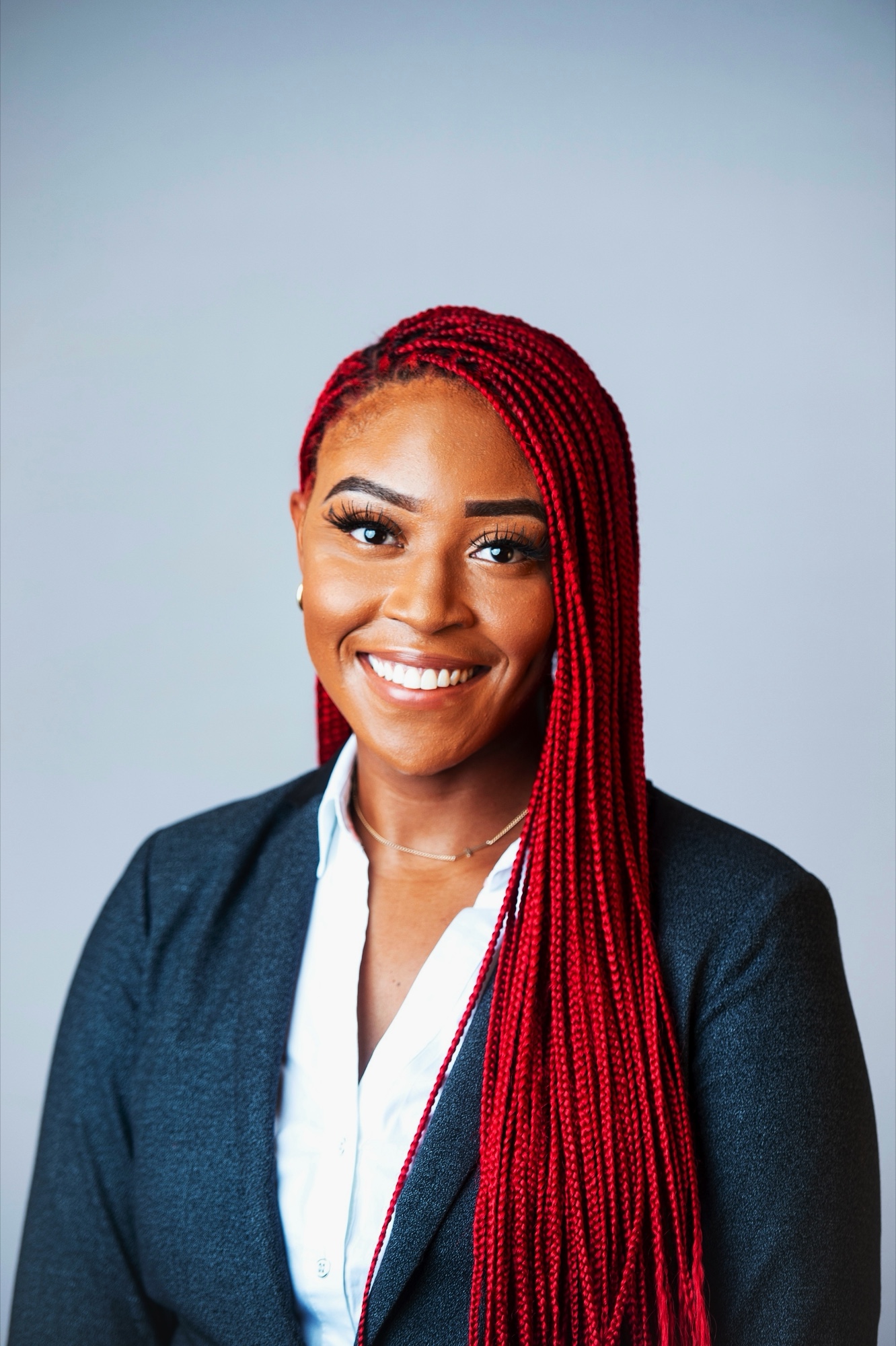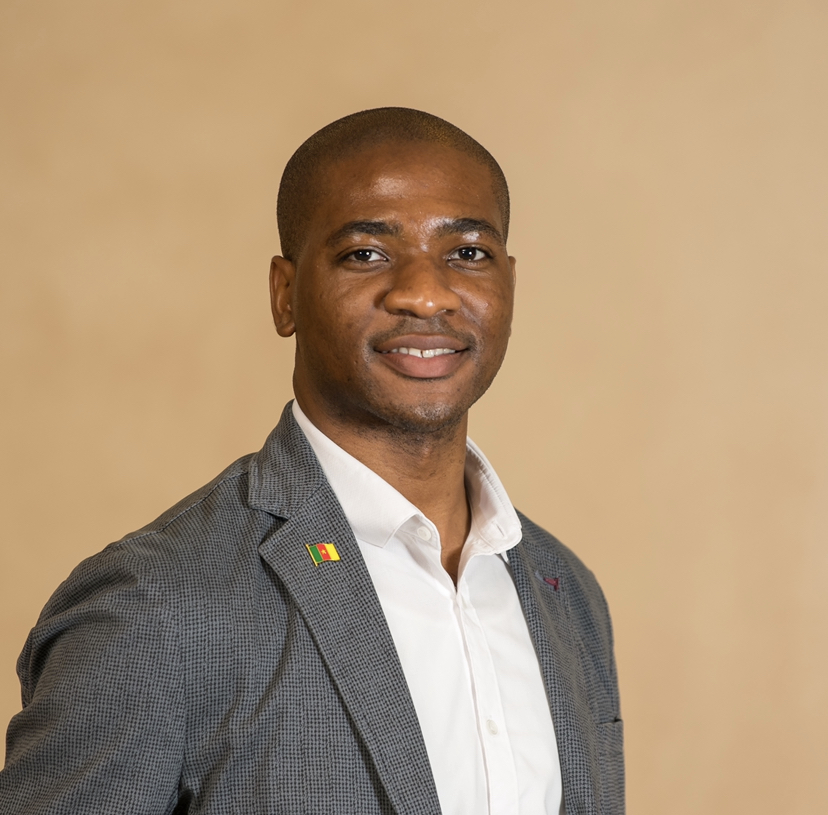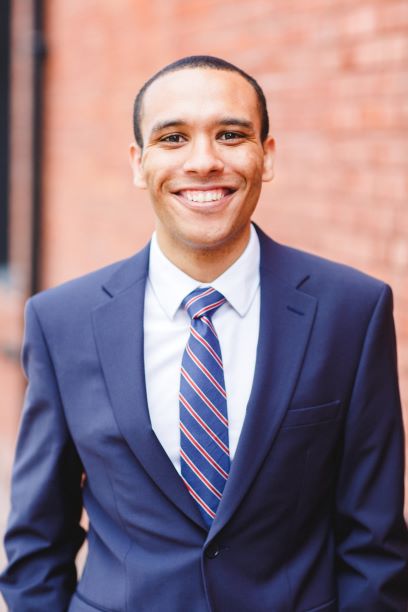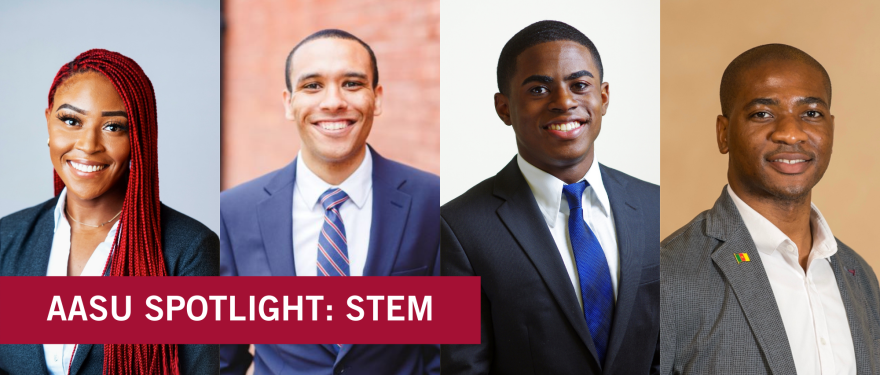The HBS African American Student Union (AASU) strives to be an extended family for its members from the moment they decide to attend HBS, through the transition to second year, and beyond graduation. Here we profile four AASU members with STEM backgrounds about their experiences before, and during, the MBA program.
Kareem Stanley (JD/MBA 2024)
Where is your hometown?
Queens, New York.
What was your pre-MBA industry and role?
I was in Energy in Project Management / Process Engineering.
Post-MBA industry and role?
Undecided.
Why did you decide to pursue an MBA given your STEM background?
Impact. When you look at making an impact, a large part of it is rooted in directing funds to places that need it. I did that at a very site-specific level as an engineer — if there was a piece of equipment at my facility that was damaged, I'd get the funds to repair or replace it. The skills you gain during an MBA, and the opportunities afforded to you post-MBA related to fundraising and deploying capital, are imperative for scaling impact. When you think about affecting change on a national or global level, an MBA is one clear way to do so.
What has been the most difficult part of your experience as a STEM student, and how did you overcome it?
I don't come from a finance background, and it often shows when I'm going through cases or engaging in the classroom. The jargon and concepts are new, but I find solace in breaking things down to fundamental mathematics and building back up from there. It takes time, but the barriers to entry can be overcome!
How have you been able to bring your STEM background and skill set to the HBS classroom?
Businesses are often driven by understanding the end-to-end experience of your customer. In some sense, engineers do exactly that. We break things down into stages and understand what levers can be pulled at each. Afterwards, we analyze how each of those levers affect both the stage at hand and those stages surrounding it. I frequently see parallels to an engineer's approach to problem-solving in our operations and marketing courses and bring that skill set into my comments to add to the classroom discussion.
Amari Griffin (MS/MBA 2023)

Where is your hometown?
Chicago, Illinois.
What was your pre-MBA industry and role?
Automotive / Engineer.
Post-MBA industry and role?
Retail / Operations.
Why did you decide to pursue an MBA given your STEM background?
I wanted to understand how the very technical work I was doing in the field of engineering contributed and impacted the overall organization. I also hoped I could leverage my technical and critical thinking skill sets to bring a fresh perspective on how to think about running a company.
What was the most difficult part of your experience as a STEM applicant, and how did you overcome it?
The admissions interview was most challenging for me because I am used to just letting my work speak for itself by creating a new product or optimizing a process. But the interview forced me to put into words everything I have done and why and how it was significant to me and the organization.
How have you been able to bring your STEM background and skill set to the HBS classroom?
I use my STEM background in every class as engineering is fundamentally about using critical thinking to solve problems and the HBS classroom challenges me to critically think about everything I say and do. But my background has been the most significant in my Technology and Operations Management (TOM) class, where I often provide first-hand experience about how different parts of technical operations can affect the way you think about solving a problem.
Anything else you would like to add?
I am still improving my technical skills (and learning some new ones) as I also pursue a joint Master’s degree in Engineering Sciences from Harvard’s John A Paulson School of Engineering and Applied Sciences.
Gana Gana (MBA 2022)

Where is your hometown?
Douala, Cameroon.
What was your pre-MBA industry and role?
Aerospace / Product Manager.
Post-MBA industry and role?
Automotive Tech / Founder.
Why did you decide to pursue an MBA given your STEM background?
To round out my technical background with a foundation in business, to test out entrepreneurship, and to build a more global network of peers outside the tech and West Coast scene.
What has been the most difficult part of your experience as a STEM student, and how did you overcome it?
Controlling for COVID, Finance! I knew little to nothing about foundational concepts in finance and spent a lot of time with tutors and professors getting up to speed. I learned a lot from some really smart folks in my section which helped me build out my skills in Finance.
How have you been able to bring your STEM background and skill set to the HBS classroom?
Being technical helps with problem solving and synthesizing more complex topics which I have found very valuable in the HBS classroom. Being able to translate highly complex concepts into simple digestible bits is a skill I have honed over time and that I leverage during case discussions.
Tyler Barnett (MS/MBA 2022)

Where is your hometown?
Cerritos, California.
What was your pre-MBA industry and role?
I was a Software Developer at Citibank, then a Data Analyst at an education nonprofit.
Post-MBA industry and role?
Entrepreneurship. I’m starting a GMAT tutoring company aimed at closing the achievement gap.
Why did you decide to pursue an MBA given your STEM background?
At Citi my job was mostly to help make applications for whatever our traders needed. While I enjoyed developing technology, I also wanted to learn more about, and influence decisions around, what we decided to build and how it ultimately delivered value to our customers.
What was the most difficult part of your experience as a STEM applicant, and how did you overcome it?
Initially I was worried that my potential recommenders at Citi wouldn’t understand why I wanted to go to business school. This in part influenced my decision to move to the education nonprofit before applying. Though now that I’m here at HBS, I have met lots of people that applied straight from software roles. I think I was overestimating the concern.
How have you been able to bring your STEM background and skill set to the HBS classroom?
I find that with my STEM experience I am able to do pretty well with the math in classes such as Finance, Technology and Operations Management, and Marketing. Also, I find that my software experience helps me to think about processes in a systematic way which can be a helpful perspective.
Anything else you would like to add?
You can do this! The application process can be stressful, but myself and others are more than happy to help in any way that we can.

